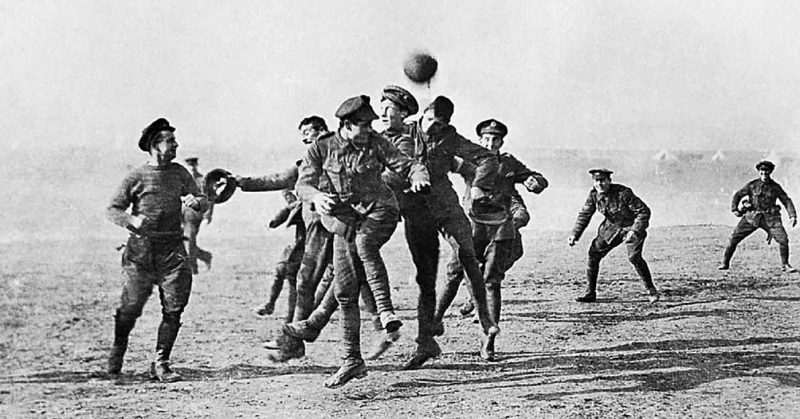In 1914, soldiers on both sides of the line stopped fighting, left the trenches and played football together on Christmas Day. It is one of the most famous events in military history.
There is new evidence now that it wasn’t a one-time event like historians had always believed.
Thomas Weber, a historian at the University of Aberdeen, found evidence that these types of events occurred throughout the war. A large number of them happened during 1916, in spite of the heavy fighting during the Battle of the Somme.
Weber has been researching a large number of personal collections while preparing for a new book on World War I. They show these events happened in spite of officers making official statements that friendly exchanges with the enemy did not happen.
According to Weber, he uncovered a surprising number of references to Christmas Truces after 1914.
This is not the commonly-held view of the war. He turned to the private accounts of soldiers who fought in the trenches. “As a result, it has become clear that we need to reconsider the view that the combatants during the Great War were driven by a brutalizing and ever faster-spinning cycle of violence and of a radicalization of minds, which made this type of truce impossible after 1914,” Weber said.
Weber feels that it is important to find out what drove soldiers to interact with their enemies at Christmas and other times of the year.
An example of what he has uncovered is a truce between German and Canadian soldiers at Vimy Ridge in 1916.
According to the Canadian Regiment’s official record of events, Princess Patricia’s Canadian Light Infantry noted that the Germans tried to interact, but no Canadians responded.
But a letter from Ronald MacKinnon tells a different tale.
It said: “Here we are again as the song says. I had quite a good Xmas considering I was in the front line. Xmas eve was pretty stiff, sentry-go up to the hips in mud of course. …”
Weber also found a letter from Arthur Burke, a private in the 20th Battalion Manchester Regiment. He wrote home on Christmas Day 1916 that, leading up to Christmas, soldiers from his unit were on speaking terms with soldiers from the German army, The Huffington Post reported.
Weber said that the prevailing view of World War I is that the first Christmas truce was not repeated because of the “circle of violence and its ensuing bitterness.”
“In fact, what we see is that, despite the difficulties they endured, soldiers never tried to stop fraternizing with their opponents, not just during Christmas but throughout the year.”
